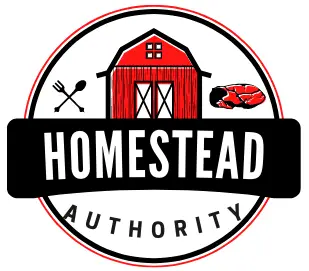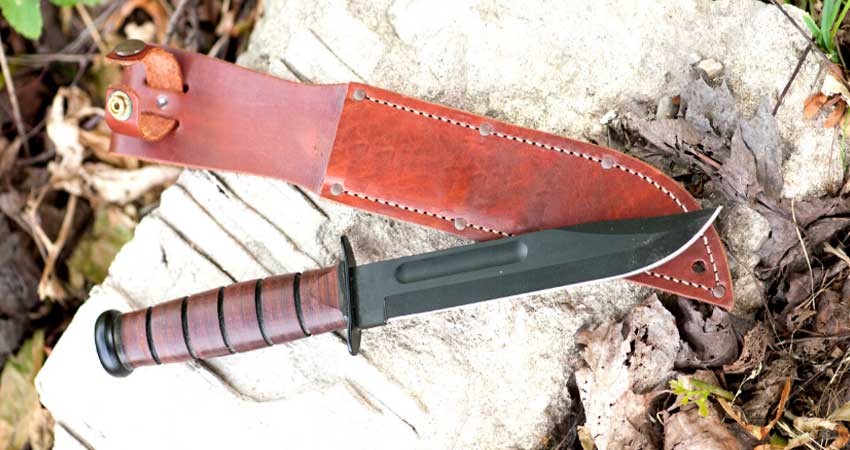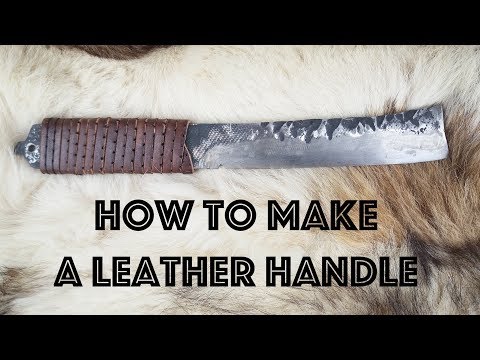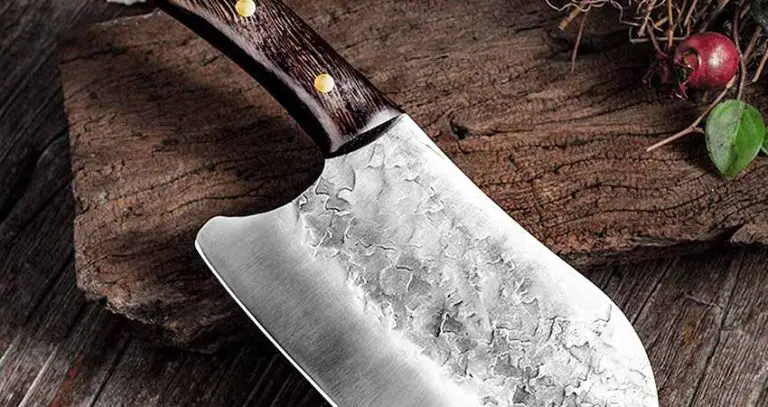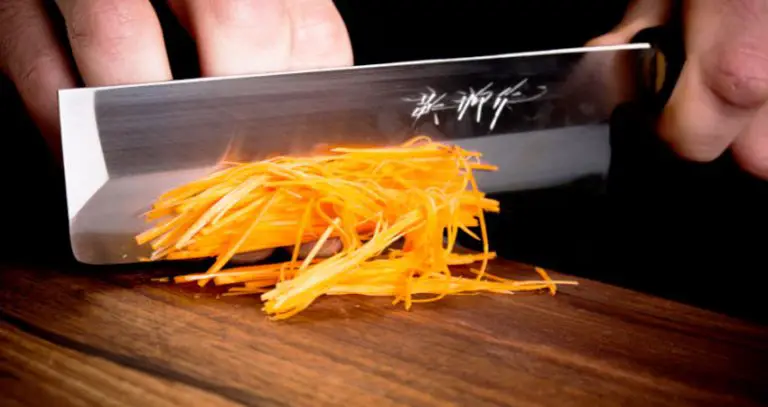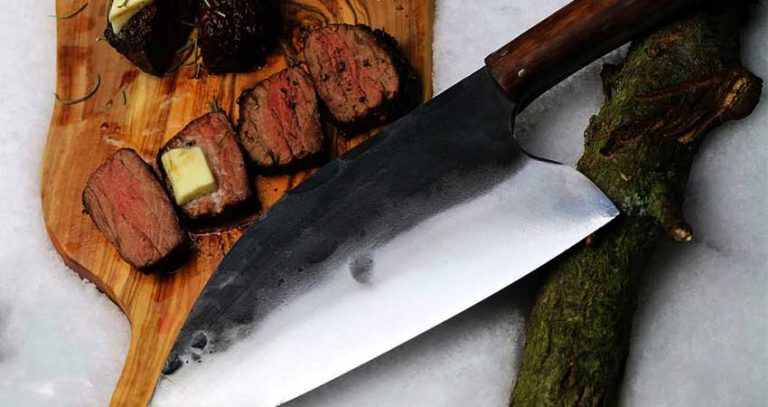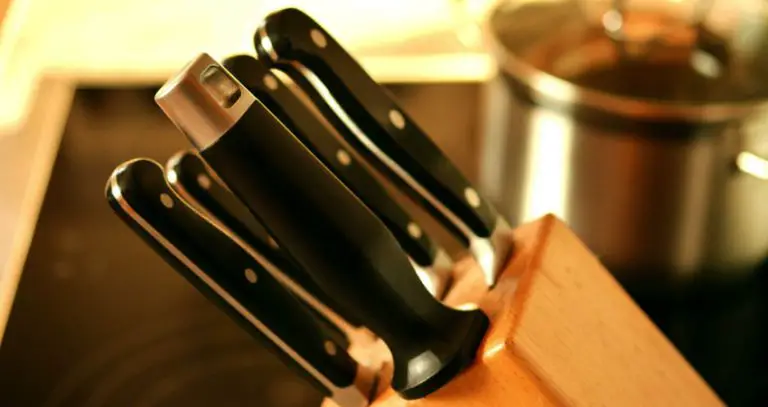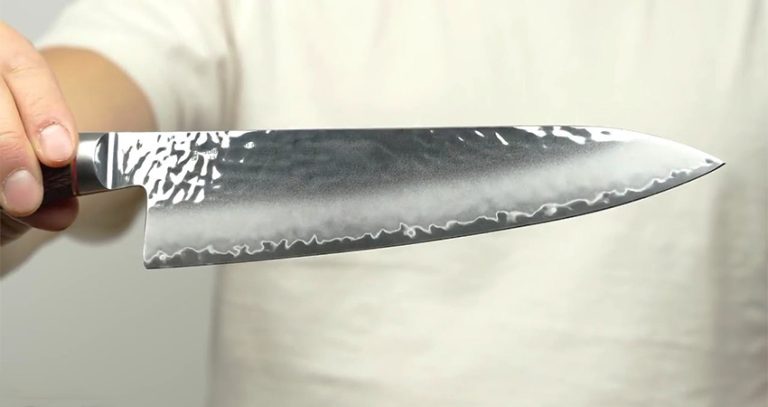How To Wrap A Knife Handle With Leather Strips?
Suppose you are chopping vegetables for your lunch. Suddenly the handle of your knife slipped, and you cut one of your fingers.
This is an extremely common scenario, and probably everyone has experienced this case. But we could easily avoid this situation if we’d use leather straps on the handles of our knives.
Though most people think wrapping leather in a handle is extremely hard, technically, it’s not. In this article, we will show you how to wrap a knife handle with leather strips with just a few normal steps.
You don’t need to acquire any expensive leather or uncommon tools. To complete the project, all you’ll need is an old piece of leather and some basic tools.
Different Way Of Knife Handle Wrapping
Knife handles can be wrapped in a few effective ways. Some methods are effective in terms of stability, and some are best because of their looks.
Since here we are wrapping a ‘knife’s handle,’ our key priority should be steadiness. Well, some suitable methods for wrapping handles would be quick-release wrapping, simple looping, spiral wrapping, Stryder wrapping, sword wrapping, and many more.
All these methods are effective, but the wrapping style can be trickier.
What Tools Are Necessary To Wrap Leather Knife Handles?
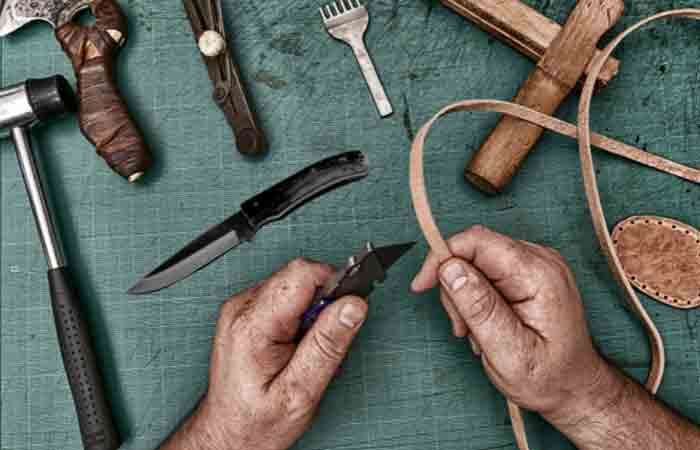
Just a few basic tools are going to be needed for wrapping the knife’s handlebar. Most of them are already in your house, and the rest can be found in your nearest super shop.
- A good piece of leather straps
- Gorilla Glue or Epoxy
- Scissors
- Tape
- Hard cord or yarn
- Measuring scale
- Pen/Notebook/Marker
How To Wrap A Knife Handle With Leather Strips?
The proper grip on the knife handle gives us a more stable cutting experience. But proper grip comes from not only good materials but also suitable wrapping.
Here we will see the easiest and most effective way of leather knife handle wrapping.
Preparing The Leather
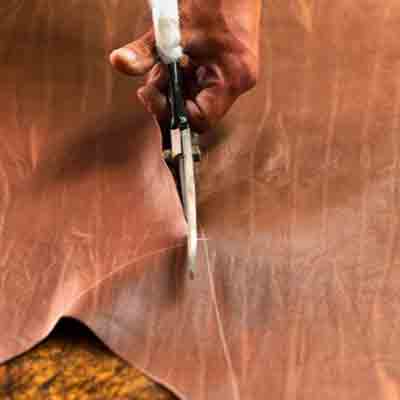
Step 1:
Here, you need to manage your leather according to the measurements of the handle. So, quickly measure your knife handle with scale or measurement tape.
Well, how much leather should you take? It depends on which wrapping methods you are following. Here we are following the simple wrap methods, so our leather should be 5 times larger than the handle size.
The width can not be less than 10cm.
For instance, if your handle size is 8 inches/20.32 cm. You should probably take 40 inch/100cm leather.
Step 2:
Now, cut your measured leather string with a knife or blade. No extra leather tail should be there after cutting. If there is a tail, then either cut it off or burn it down carefully.
Step 3:
Dip your leather in warm water for at least half an hour. Soaking in water will make the string more whippy or flexible.
As a result, it will be easier to wrap. Besides, when it dries out, the leather will automatically get tight on the handlebar.
Wrapping (Simple Wrap Method)
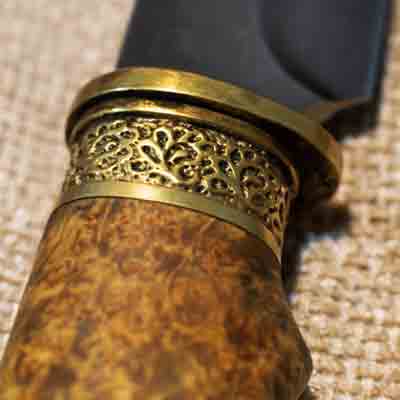
Step 4:
Now, you have to make a single tight loop on top of the handlebar. When your leather is ready, make a tight loop and wrap it throughout the knife’s handlebar. If it doesn’t seem strong, use an inconsiderable amount of epoxy or Gorila glue.
Step 5:
Once you tie up the first loop, now you have to make the loops by rotating the strings continuously. Make sure there is no gap between the two string rotations. Keep making the loops until you reach the bottom points.
Step 6:
When you reach the end, tie the extra string very tightly. If there’s still more sting available, then make another tie.
Step 7:
Cut away the extra string or make a small loop. Because later, you might need to tighten the string. If there is no string left, then you won’t be able to do that.
So save some string. Don’t forget to burn the string head; otherwise, it will start unattached and loosen your knot.
Other Wrapping Method (Quick Release Wrapping)
Step 1:
Measure the length of your knife’s handle. Make a big loop the same as the handle length. In the bottom of the handle, create a simple knot.
Make sure the knot is properly captured in the loop. The loop should be faced on the blade side.
Step 2:
Now, take the long path and start wrapping it around the handle. Instantly just after that, make another wrap around the loop.
Step 3:
Keep following the same command until you have reached the top of the handlebar.
Step 4:
When you reach the top. Make a final wrap, and the strips will go inside the big loop that you have created earlier. You can change the position slightly by pulling the strip’s end.
Step 5:
Finally, cut the excess rope with scissors. And using a lighter, burn the end of the rope a little so that it does not unbind, anyway.
Drying and Finishing
Step 8:
You are only one step away from the finishing end. It’s time to dry out your handlebar’s leather. You can naturally dry it by putting it under the sunlight, or you can also use a dryer.
When you dry the handle, it slowly starts shrinking, and the leather will be tightly fixed with the handle in a moment. After that, you may use it immediately.
Why Wrapping A Knife Handle With Leather Strips?
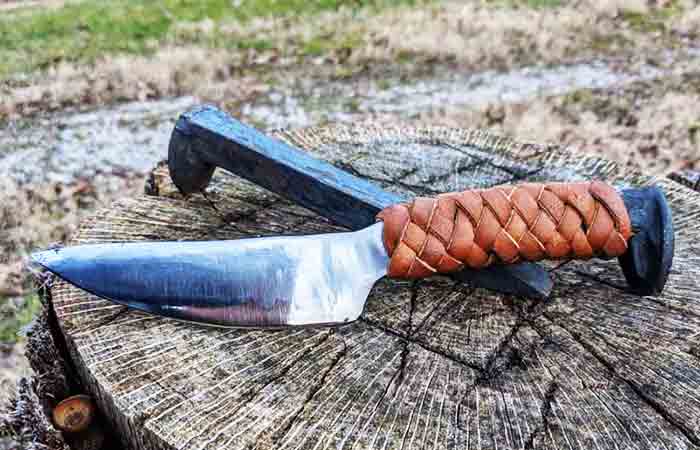
To get a better result, you have to put enough effort into both the blade and handle of the knife. Frankly, though you have the sharpest blade, still your imperfect handle never lets you work comfortably.
Apart from that, a defective handle can be dangerous while you’re cutting something. It can be slipped from your hand easily.
In addition, a lack of grip won’t help you cut things in the right way. So, in that case, leather wrapping is the best idea.
Benefits To having A Leather Knife Handle
Add More Grip
Though initially, a knife comes with a plastic handle or wooden handle with minimum grip. But another layer of leather wrapping makes it handier and increases the adhesiveness.
Changeable And Customizable
You may change the handle grip from time to time. For example, if it gets damaged, you can easily replace it with another type of leather.
Less Maintenance
If you oil your knife, it will probably give the knife more protection. But it requires more conservation.
On the other hand, leather wrapping doesn’t require much maintenance, and it’s simple to set up.
Prevent Moisture From The Wood
Leather creates a safeguard against any moisture. When your knife is wrapped with good leather, there is no chance that your handle’s wood will get wet.
Premium Look
When you wrap your knife’s handle with beautiful leather. The looks will automatically change, and it’ll become more premium and classy.
Final word
Honestly, we have shown only two ways of how to wrap a knife handle with leather strips. But there are a lot of other methods to follow.
‘Simple wrap’ and ‘quick wrap’ are the easiest and most effective processes. Anybody can wrap his knife by following this instruction.
But there are other things to remember before starting work. For example, you really need to be aware of all the necessary tools and materials.
Otherwise, your work will be disrupted. Similarly, you miss any important steps like burning the rope’s end, and later, it will disassemble your leather wrap.
We will ensure you if you are successfully able to follow our process. You will end up with a significant result.
